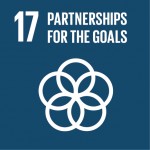Easter is coming up, and we are already looking forward to a long weekend of enjoying the sun and eating chocolate. To make sure everyone, including the environment, is as happy as a bunny, we put together some tips on how you can go the eggs-tra mile to do good this Easter. (No more egg puns, we promise)
Here are our top five Easter tips:
- Fairtrade chocolate eggs
What’s better than getting lots of chocolate eggs for Easter? Getting lots of Fairtrade chocolate eggs! Fairtrade ensures that farmers around the world get a fair price for their cocoa, and invests in communities to improve lives.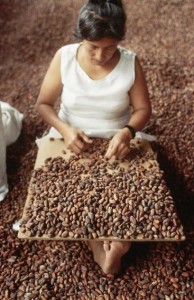 With more and more companies now offering Fairtrade chocolate, Easter is the perfect opportunity to support the scheme. The Fairtrade Foundation lists a few companies offering Fairtrade Easter eggs this year, but there are plenty more around on supermarket shelves!
With more and more companies now offering Fairtrade chocolate, Easter is the perfect opportunity to support the scheme. The Fairtrade Foundation lists a few companies offering Fairtrade Easter eggs this year, but there are plenty more around on supermarket shelves!
- Packaging
So, we have eaten all the chocolate, and now we are left with a mountain of wrapping. To prevent this, try to find treats with less packaging. There are now great alternatives to lots and lots of plastic on the market, for example the Eco-Egg by Montezuma’s, which comes plastic-free in biodegradable packaging.
You can also try to upcycle any waste that does arise – Pinterest always has lots of ideas!
- Locally sourced food
Everyone loves a good Easter Sunday meal. Why not challenge yourself to make it using locally sourced ingredients this year? Buying from local markets and farmers means your food has travelled less miles on the road – and it gives you a better idea of where your food came from and how it was produced.
- Get outside
After all of this f ood, Easter can also be a great time to enjoy the (hopefully) warm weather! With the stressful exam period coming up, making use of green spaces can help clear your mind – even if you don’t have time for extended walks, you could move your workspace outside for a few days. There are plenty of green spaces around London (e.g. Richmond Park, Southwark Park, Primrose Hill, Hampstead Heath etc.), and if you want to get your hands dirty, you can try out some community gardening!
ood, Easter can also be a great time to enjoy the (hopefully) warm weather! With the stressful exam period coming up, making use of green spaces can help clear your mind – even if you don’t have time for extended walks, you could move your workspace outside for a few days. There are plenty of green spaces around London (e.g. Richmond Park, Southwark Park, Primrose Hill, Hampstead Heath etc.), and if you want to get your hands dirty, you can try out some community gardening!
- Switch Off
Before you leave King’s, please make sure you switch off anything you don’t need.![]() This can be anything from kitchen equipment (fridges, microwaves), office equipment (printers, PCs, screens), to lab equipment not in use (please do check with the owner if it is ok to switch off!). In 2015, students and staff at King’s switched off for Easter and saved 95 tonnes of CO₂ – this is the same as taking 18 cars off the road for a whole year.
This can be anything from kitchen equipment (fridges, microwaves), office equipment (printers, PCs, screens), to lab equipment not in use (please do check with the owner if it is ok to switch off!). In 2015, students and staff at King’s switched off for Easter and saved 95 tonnes of CO₂ – this is the same as taking 18 cars off the road for a whole year.

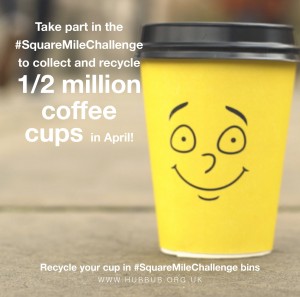 The aim of the challenge is to recycle half a million paper coffee cups in the month of April. Coffee cups have been getting lots of bad press recently, as seven million of them are thrown away every single day – that’s 4000 a minute! The problem with this mountain of coffee cups is that less than 1% of them are recycled. While they are recyclable in theory, this does not happen in practice. The reason for this is the plastic lining inside the cup, which is almost impossible to separate from the paper. As a result, the coffee cups are either incinerated, or worse, end up in landfill.
The aim of the challenge is to recycle half a million paper coffee cups in the month of April. Coffee cups have been getting lots of bad press recently, as seven million of them are thrown away every single day – that’s 4000 a minute! The problem with this mountain of coffee cups is that less than 1% of them are recycled. While they are recyclable in theory, this does not happen in practice. The reason for this is the plastic lining inside the cup, which is almost impossible to separate from the paper. As a result, the coffee cups are either incinerated, or worse, end up in landfill.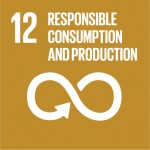 And not just for the environment – it can save you money too! King’s Food will give you a free hot drink if you buy a KeepCup from them. If you already have one, you get 10p off your drink every time you use it. Starbucks will give you 25p off your drink if you bring your own cup, and Caffe Nero will give you double stamps for your loyalty card.
And not just for the environment – it can save you money too! King’s Food will give you a free hot drink if you buy a KeepCup from them. If you already have one, you get 10p off your drink every time you use it. Starbucks will give you 25p off your drink if you bring your own cup, and Caffe Nero will give you double stamps for your loyalty card.

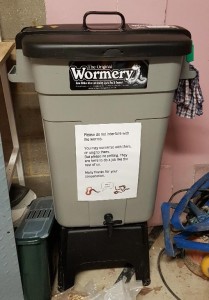
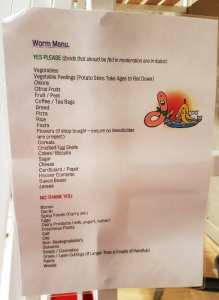
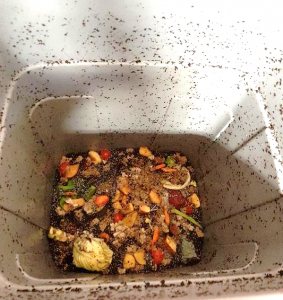
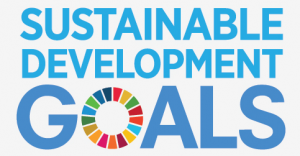 The conference started with a keynote speech by Amanda MacKenzie OBE, who highlighted the importance of getting everyone involved. When the SDGs were unveiled, she ran a campaign to get word about them out there. One of the key messages of this was the importance of using simple language everyone understands. This is why she refers to the goals as Global Goals rather than SDGs, claiming the term SDGs “sounds like something you would see your doctor about”. By calling them the Global Goals and making them accessible, we should be able to take millions of small, simple actions, together adding up to significant change.
The conference started with a keynote speech by Amanda MacKenzie OBE, who highlighted the importance of getting everyone involved. When the SDGs were unveiled, she ran a campaign to get word about them out there. One of the key messages of this was the importance of using simple language everyone understands. This is why she refers to the goals as Global Goals rather than SDGs, claiming the term SDGs “sounds like something you would see your doctor about”. By calling them the Global Goals and making them accessible, we should be able to take millions of small, simple actions, together adding up to significant change.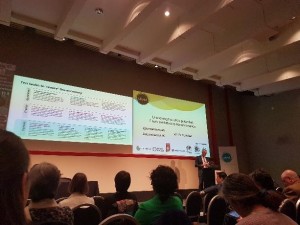
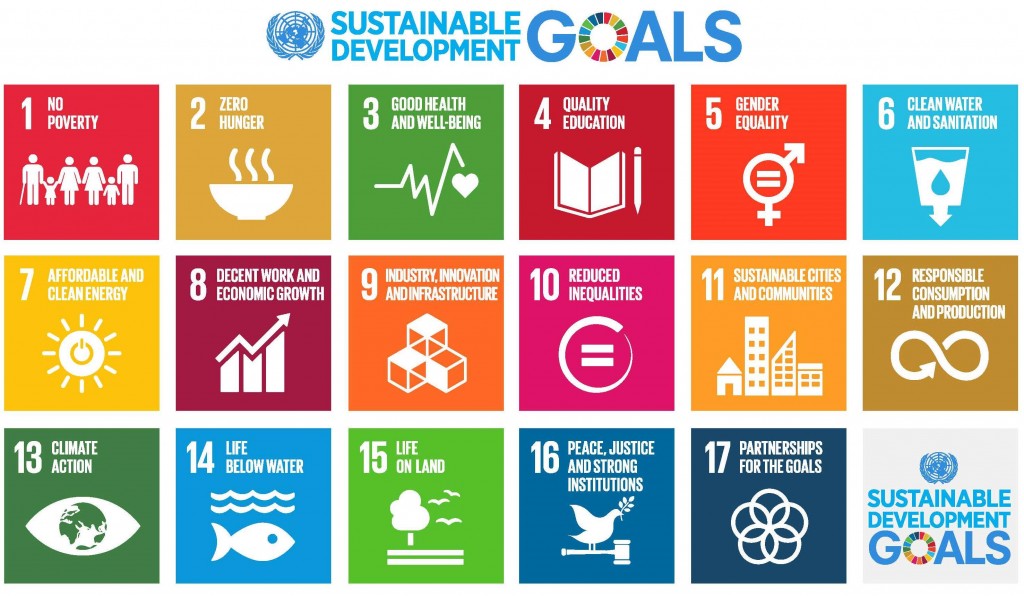

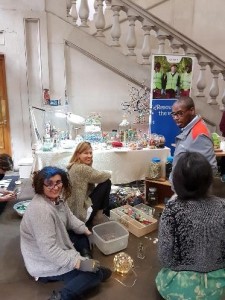
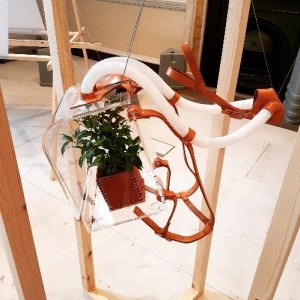
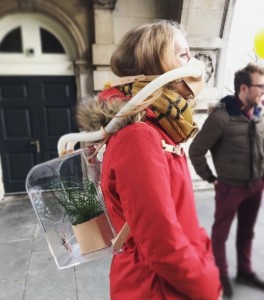
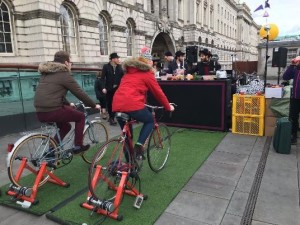


 and qualitative measures developed at the GCSO institutions. This way, universities can ensure that operations and users of buildings do not experience any negative impacts as a result of the “experiment”.
and qualitative measures developed at the GCSO institutions. This way, universities can ensure that operations and users of buildings do not experience any negative impacts as a result of the “experiment”.